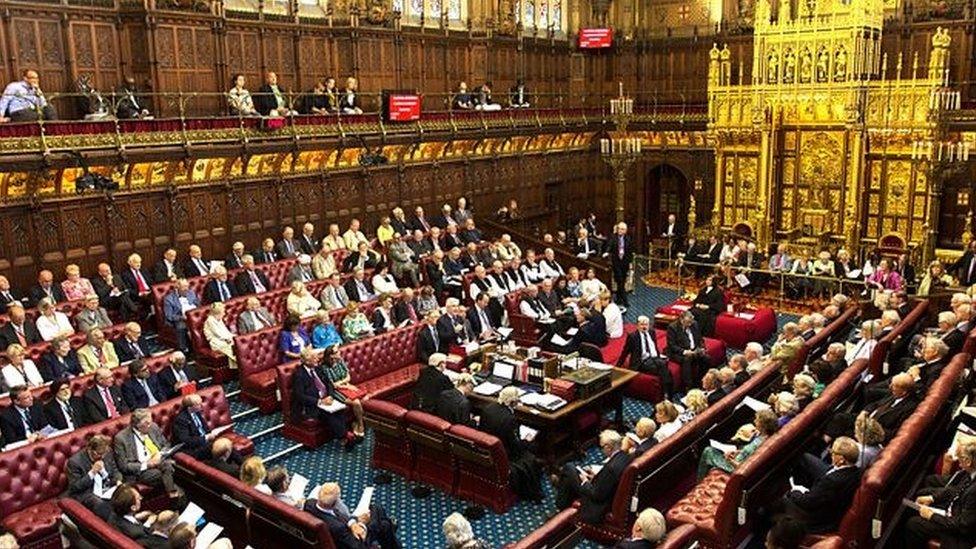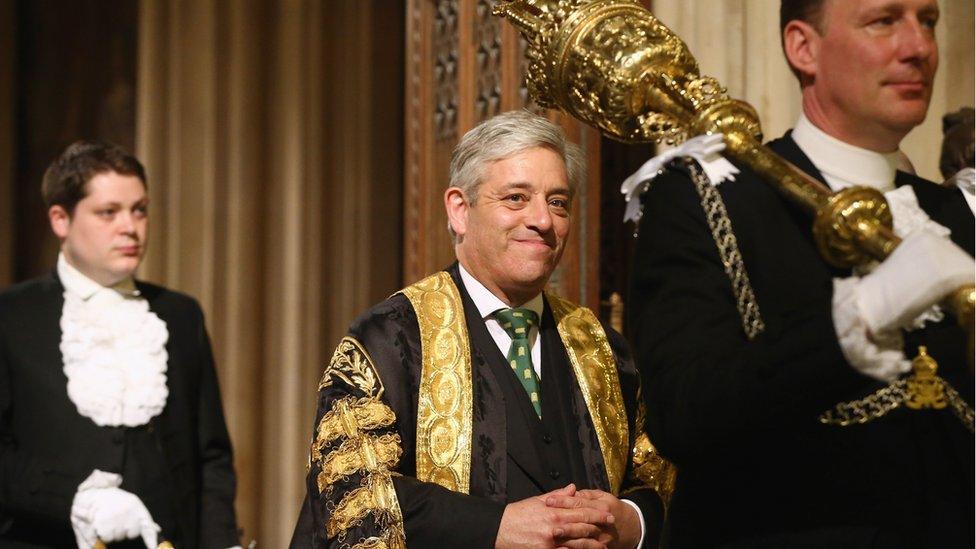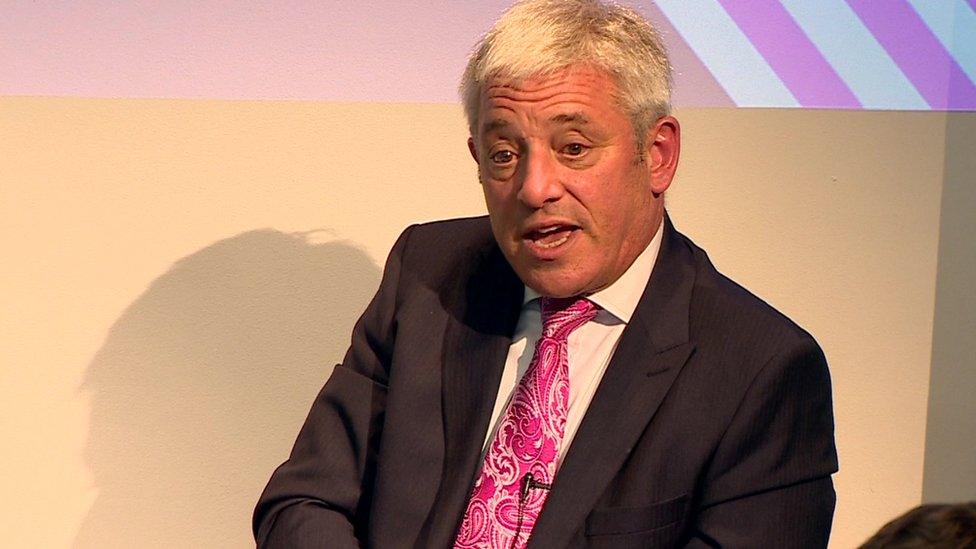House of Lords rejects 'couch potato peers' allegation
- Published
- comments

The House of Lords has 798 members, making it the second-largest legislative body in the world
The House of Lords has defended its role after the Electoral Reform Society criticised "couch potato peers".
The society said peers who had spoken five times or fewer in the chamber in 2016-17 had claimed more than £4m in expenses.
And almost 4% of peers had not spoken or voted at all.
But a House of Lords spokesman accused the society of having a "narrow focus on spoken contributions" and said peers had a wider role.
The row follows a call from Commons Speaker John Bercow to cut the number of peers by half to about 400. The House of Lords is conducting its own inquiry into ways to reduce its size.
The UK Parliament's second chamber has 798 members in total, making it the second-largest legislative body in the world, after the National People's Congress of China.
Members are not paid a salary but can claim an attendance allowance of up to £300 on days that the House sits.
Expenses rise
The Electoral Reform Society, which campaigns for the reform of Britain's voting system, said spending on House of Lords allowances and expenses in 2016-17 added up to £21,777,168 compared with £18,070,174 in 2014-15 - a 20% increase.
The campaign group said: "The most active 300 peers claim only half the expenses - showing the size of the Lords can be cut without significantly limiting its work."
It added that "£4,086,764 has been claimed by the 36% of peers who spoke five times or fewer in the past year, many of whom simply turn up to vote" while over £1m had been claimed by "peers who voted 10 times or fewer".
Chief executive Darren Hughes said: "There appears to be a growing 'something for nothing' culture in our upper House, with tidy sums being claimed by those who barely contribute.
"And there are a worrying number of couch-potato peers and lobby-fodder Lords at a time when there is plenty to scrutinise - ostensibly the upper chamber's role."
He added: "Rather than spending immense sums on peers who fail to even speak up in Parliament, we need a fairly elected upper House - with a much smaller number of salaried peers - ending the rolling expenses scandal the chamber has become."

John Bercow has said the House of Lords should not be bigger than the House of Commons
A House of Lords spokesman said the upper House's annual reports and accounts, external showed the claim of a 20% increase in expenses was "factually incorrect".
He said: "In the 2016-17 financial year, the total expenses claimed were £22.4m. In 2014-15, they were £20.1m. This is an increase of 11%, largely due to there being 15 more sitting days in 2016-17 [153 in 2016-17 compared with 138 in 2014-15]. The average daily attendance was the same in both periods."
The spokesman said: "Speaking in the chamber is only one of the ways members hold the government to account, and this research ignores members' contributions including amending legislation, asking the government written questions and serving on select committees - more than 320 members served on committees in the last session of Parliament - as well as parliamentary work away from the chamber.
"It is inaccurate to describe a House that tabled 5,608 amendments to legislation, asked government 7,395 written questions and published 170 committee reports in 2016-17 as a 'part-time' House.
"The Lords is an active and effective revising chamber."
The Electoral Reform Society said the House of Lords figures included staff and office costs, which had not increased by as much in percentage terms as expenses.
'Elected House'
The Liberal Democrats said the Electoral Reform Society's figures pointed to a need for "a democratically elected second chamber that is fully accountable to the public".
Lord Newby, who leads the party in the House of Lords, said: "Whilst the vast majority of peers provide good value for money to the taxpayer, these figures show that there are exceptions."
The last major reduction in the size of the chamber was in 1999, when the House of Lords Act cut the number of hereditary peers by more than 600 to 92. There are currently 91 in the Lords.
More recent changes have included allowing peers to retire and introducing the power to expel them for wrongdoing.
Commenting on the Electoral Reform Society report, Labour MP and former minister David Hanson called for the removal of the remaining hereditary peers.
"Whether people speak or not, the Lords as it stands is no longer fit for purpose," he said.
"It is plainly wrong that an individual is given the right to pass and amend laws and question the government in Parliament by accident of birth."
In December 2016, the House of Lords backed an inquiry into ways to reduce the size of the chamber. A cross-party committee, chaired by independent peer Lord Burns, is due to report in October.
- Published14 September 2017
